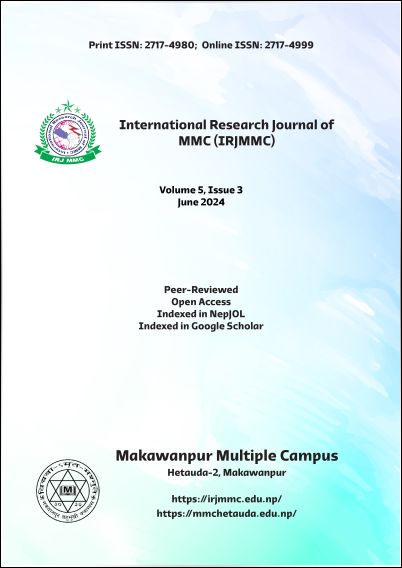Improving Crisis Management Strategies in the Nepalese Security Sector
DOI:
https://doi.org/10.3126/irjmmc.v5i3.68435Keywords:
Crisis management, Strategy, Security sector, NepalAbstract
Nepal's mountainous terrain and complex socio-political landscape expose it to various crises. While the security sector plays a crucial role in managing these events, there is room for improvement. This paper examines existing crisis management practices and proposes strategies to enhance preparedness, response, and recovery capabilities. Through a review of existing literature and analysis of past crisis response reports, this research examines how Nepal's security sector, facing challenges due to decentralization and neglecting mental health, can improve crisis management. Through a qualitative approach, the study identifies the need for better collaboration between local authorities and security forces, integration of local knowledge and community participation, and investment in technological advancements. Data were collected from reviewing relevant academic journals, government reports, and publications for the last 20 years and interviewing security personnel from the Nepal Army, Nepal Police, and Armed Police Force Nepal (APF) who have participated in past crisis response operations. It emphasizes addressing the mental health needs of security personnel and ensuring gender inclusivity in crisis response strategies. Implementing these recommendations can lead to Nepal's more comprehensive, effective, and resilient crisis management system.
Downloads
Downloads
Published
How to Cite
Issue
Section
License
Copyright (c) 2024 The Author(s)

This work is licensed under a Creative Commons Attribution-NonCommercial 4.0 International License.
This license enables reusers to distribute, remix, adapt, and build upon the material in any medium or format for noncommercial purposes only, and only so long as attribution is given to the creator.

